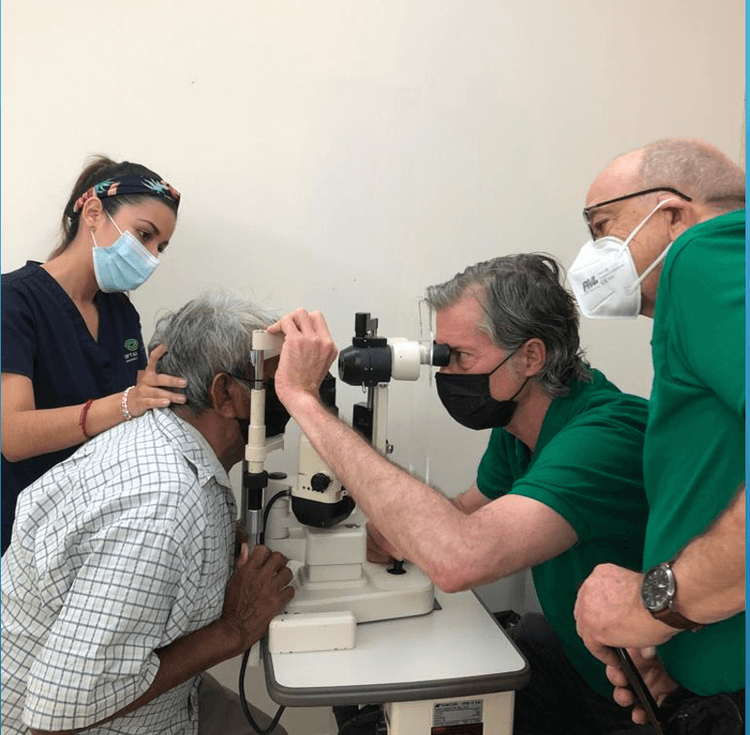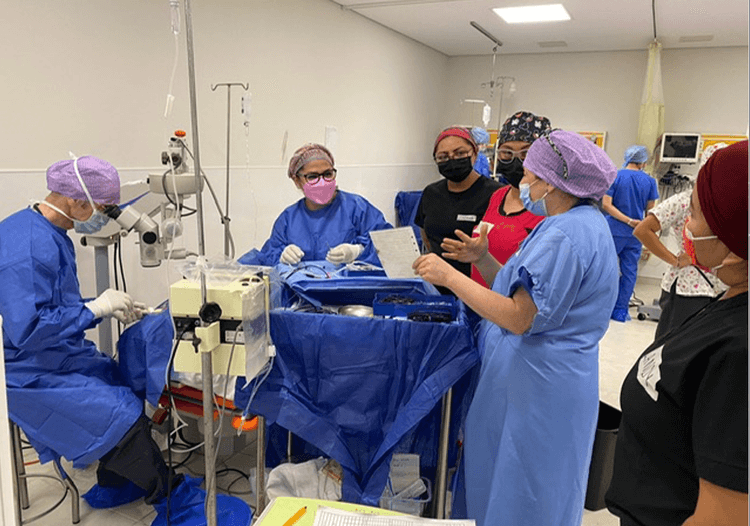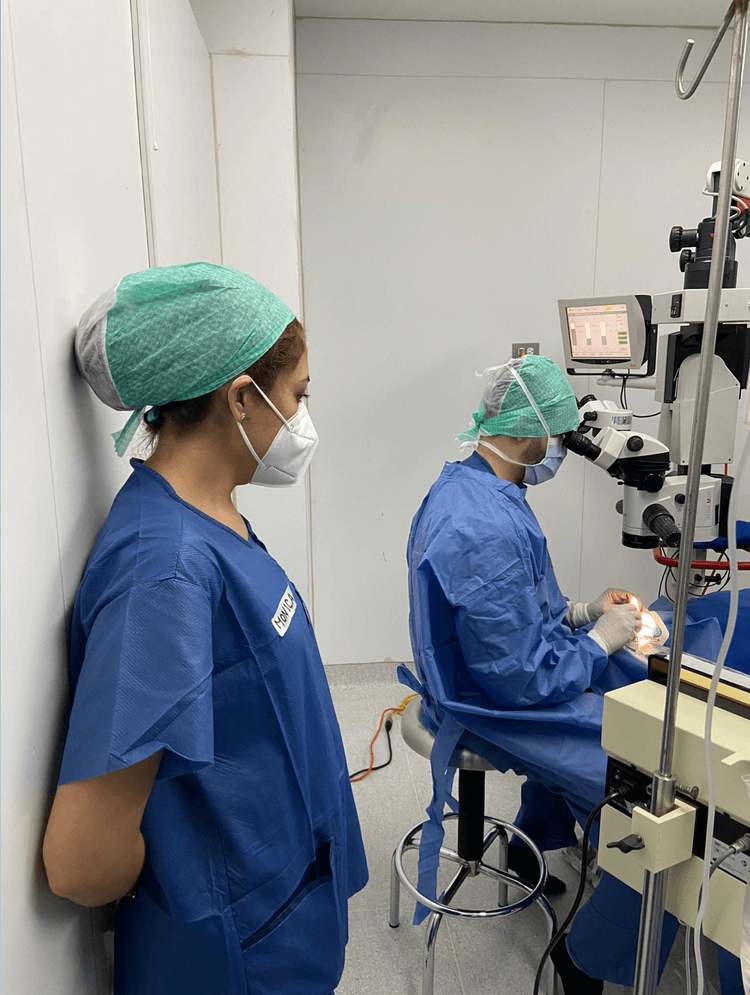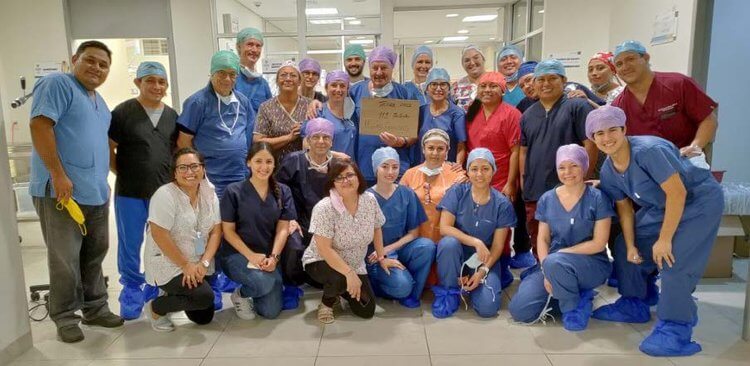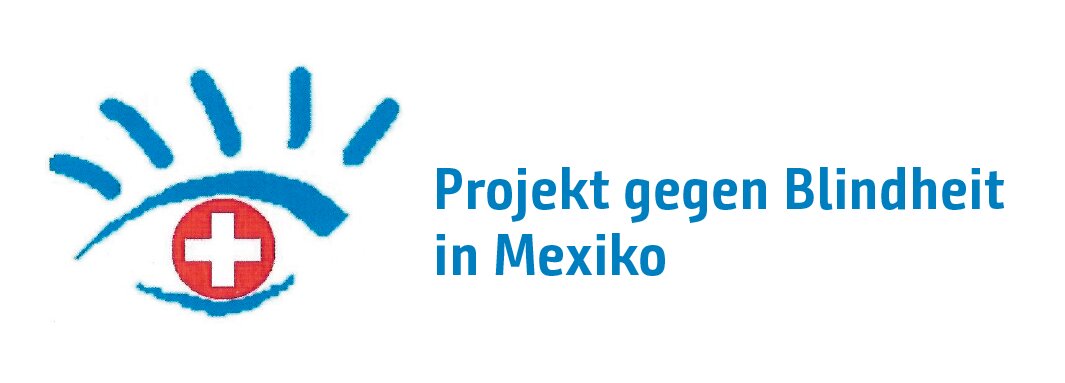After a break of more than two years, a trip to Mexico for our project against preventable blindness in Mexico has finally become possible. Norma Aragon, our contact person for the Mexican Ministry of Health and local organizer in Mexico City, has arranged for us to have one mission each in two hospitals in Yucatan.
Mission in Mérida
The journey goes almost without any problems. Unfortunately, the check-in staff of Edelweiss Air has no understanding for our humanitarian mission. We have to pay for the cost of the excess baggage with our many suitcases. However, the entry into Mexico in Cancun is very pleasant. Thanks to Norma’s preparation, we can easily pass through customs in Cancun without a single suitcase being opened. This has never happened in all the years we have been to Mexico City. Entry there was always a cumbersome process with time lost due to luggage checks and sometimes additional import duties. In joyful anticipation, we embark on the four-hour bus journey from Cancun to Merida, our first place of work.
The first mission takes place at Clinica Oftalmos in Merida. Merida is a medium-sized city with about 950,000 inhabitants in the northwest of Yucatan. It is the most beautiful and cleanest city we have seen in Mexico so far. It is also considered very safe, hardly affected by Narcotrafico.
Setting up the operating rooms goes smoothly. We receive two rooms in which we can set up two operating tables each with phaco equipment and a microscope. Only one thread of a locking screw on the swivel arm of a microscope is unusable. The screw can be roughly “forced” in by a strong Mexican technician. A repair will probably be necessary soon.
The start of work on the first day is a bit slow. Too many people are standing around, and everyone still needs to learn what they have to do. But soon the operation is running normally. The hospital staff work motivatedly, and as it is an ophthalmological clinic, there are few problems.
The second operating day begins with the bilateral operation of a small child with congenital cataract under anesthesia, which takes a lot of time. Two difficult cases, in which the retina surgeon has to correct the complications, further delay the work. We finish work at 6 pm. It was a long day.
The third operating day goes more smoothly. We finish the program at 2 pm. Therefore, a beach visit is unanimously decided. The town of Progreso, the beach colony of Merida, can be reached from the hotel in a 40-minute drive. Four hours later, back in our minibus on the way home, we are happy about the “wise” decision.
The fourth operating day goes well, with many difficult lenses, but fortunately no significant complications. After four days, 118 eyes in 117 patients have been operated on for cataracts.
Then it is time to clean up and pack everything so that all the equipment can be transported to the new destination.
Sunday is the travel day to Tekax, our second place of work. The departure is planned for 10 am. The schedule cannot be fully adhered to. One of the drivers missed the switch to daylight saving time. However, the departure is still possible at 10:50 am. We are excited to see what the new place will bring. The journey in the minibusses takes just under two hours.
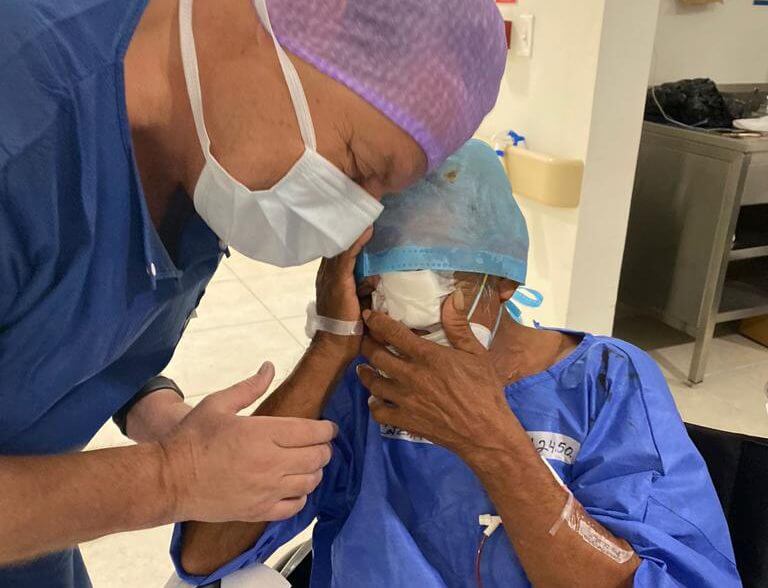
Mission in Tekax
Upon arrival at Hospital General de Tekax, our second place of work, we immediately set up our operation room. We are given the large, modern recovery room of the clinic as our workspace so that the hospital can still have its operating rooms and function.
The start of work at Hospital General is extremely slow. Ophthalmological procedures have never been performed at the clinic, and everything is new to the local staff. Among the patients, there are many diabetics who the local anesthesiologist does not want to allow into surgery. However, we can convince him that cataract surgery can also be performed with high blood sugar.
After the slow start, things progress well. The hospital staff are super cooperative and happy for the change in routine. The program can be carried out as planned.
The program is quite large for the second day of surgery. In addition, there is a small staffing problem. The technician’s assistant for our retinal surgeon, who knows his machine well, is out with Montezuma’s revenge. She is in bad shape. Since she cannot drink, she is given fluids through an infusion. The defect with the broken thread on my microscope becomes noticeable again. Now I realize that someone had mixed up the screws, causing the thread to be destroyed. A clinic technician helps me with a large wrench and manages to reinsert the screw so that I can continue working with some limitations.
The local technicians are very interested in eye surgery and want to continue their education. Since I always work with a Mexican ophthalmologist who has been participating in our campañas for a long time, I take her to my table and let her assist with the surgeries. I use a different one for 2-3 surgeries each time. This slows down my work pace a bit and increases my stress level slightly. But the people at the hospital in Tekax appreciate the instructions very much, and with the help of my Mexican technician in the background, things go well.
On the third day of surgery, the start of work is delayed again. The preparation of the patients is causing some problems. Then suddenly, things start going well. There are several difficult lenses to operate on, but fortunately, we don’t have any serious complications. Our retinal surgeon can manage his additional workload well.
The cooperation of the hospital staff with us foreigners is exemplary, and the people help us wherever they can. As a small token of appreciation, we instruct local TOAs again in ophthalmic surgery.
The chaos in our material is great after the long time and several relocations. Finally, since there is enough space and time, we take inventory. At the end of each campaign, everything is sometimes packed in a hurry and then forgotten until the next campaign, which was now three years ago. There are lenses with an expiry date of 2010 and medications that expired in 2017. There is an urgent need to organize everything.
When we arrive at the clinic on the fourth day, the floor of the changing room is completely flooded. Water is flowing in streams from the lamp socket in the middle of the room. The light doesn’t work anymore, but you could take a shower here now. We change in the hallway. Nevertheless, the surgery program starts well and on time.
Suddenly, we notice a biting smoke smell in the operating room. Fortunately, the cause is quickly found. The power supply of one of our portable sterilizers has burned out. The power supply here has extreme fluctuations. Therefore, all machines consuming power must have a regulator installed to prevent such events. Unfortunately, there was no such device available for this sterilizer. That’s why the incident didn’t surprise anyone. The work pace is noticeably slowed down as the sterilization capacity is now halved. The patients have to wait on the operating tables until instruments are available again and the surgery can begin.
The op covers are used up, but there are enough op gowns. Therefore, we will use gowns as a replacement, cut a hole in them, fix everything with a Tegaderm film, and attach a plastic bag for the rinsing water at the bottom. Despite these problems, the program can be completed in an acceptable time. There were hardly any complications on this day.
Then it’s time to clean up and pack up again. We already have some experience from the first location and many helpers, so the work progresses quickly.
119 operations could be carried out again.
We are actually used to larger campaigns in two different states with five days of operation per week. However, due to the pandemic, we had to limit ourselves to one state, Yucatan, this year. Since each Mexican state has a limited budget for such campaigns, we agreed on two campaigns in Yucatan, shortened to four days each, at two different locations. This was not possible otherwise, as we operate in public hospitals and work with the government. The Mexicans bear the costs of renting the operating rooms, the production losses, and the local personnel costs. In addition, this enables and guarantees us the work permit and legal certainty. However, we will do everything we can for the next campaign in 2023 to be able to carry out a full-length deployment in two different states again.
Ophthalmologists and helpers
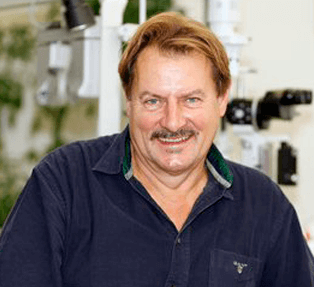 Dr. Alex Heuberger
Dr. Alex Heuberger
Ophthalmologist FMH, Olten Mexico project management
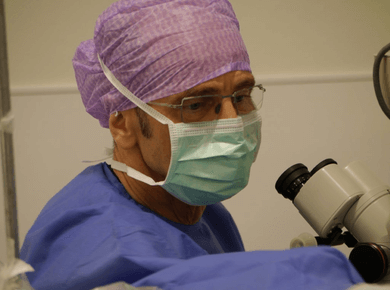 Dr. med. Johannes Schwarz
Dr. med. Johannes Schwarz
Ophthalmologist FMH, Zurich
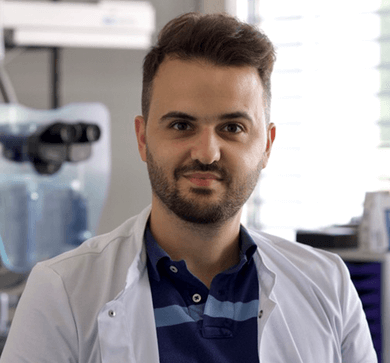 Dr. med. Joannis Lamprakis
Dr. med. Joannis Lamprakis
Specialist FMH Ophthalmology
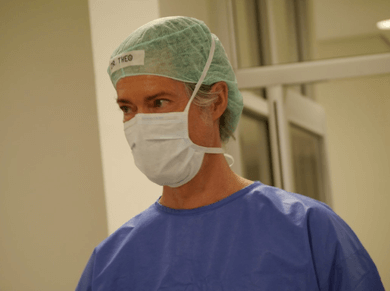 Dr. med. Theo Signer
Dr. med. Theo Signer
Chief Physician Vistaklinik
 Dr. med. Alphons Fässler
Dr. med. Alphons Fässler
Ophthalmologist
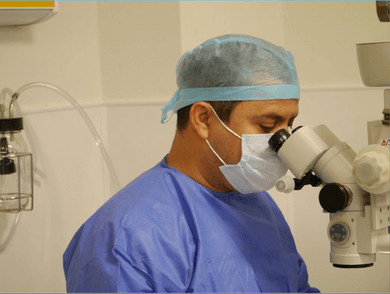 Dr. med. Fernando Cesta
Dr. med. Fernando Cesta
Veracruz
Impressions
